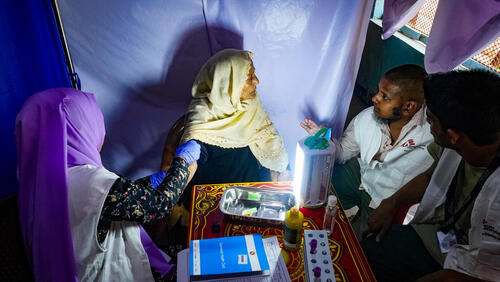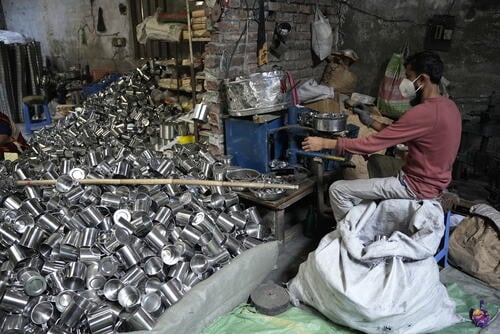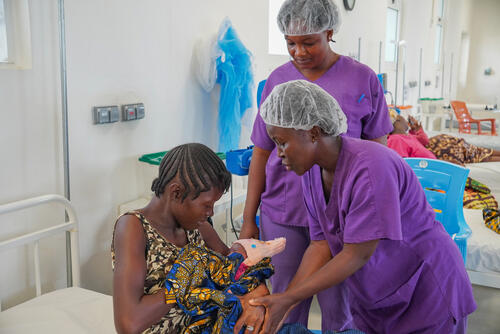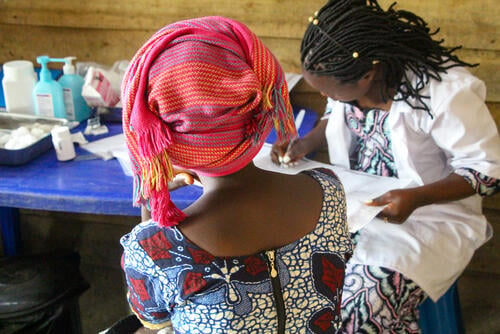- MSF has begun a large-scale "test and treat" campaign for hepatitis C in the Cox's Bazar refugee camps in Bangladesh, aiming to treat 30,000 people by the end of 2026.
- Addressing the widespread hepatitis C epidemic among the Rohingya in the camps is challenging, considering the limited availability of care in the camps.
- The campaign will include research to analyse challenges and propose solutions for testing and treating hepatitis C.
COX'S BAZAR, BANGLADESH – To address concerningly high levels of hepatitis C in the Rohingya refugee camps in Cox’s Bazar, Bangladesh, 30,000 people will receive care by the end of 2026 as Médecins Sans Frontières (MSF) significantly expands our treatment programmes. The initiative improves access to hepatitis C care for a group of stateless people who are particularly exposed to this curable, but potentially fatal, disease. MSF is establishing three specialised hepatitis C treatment centres within existing health facilities inside the camps, as part of a “test and treat” campaign covering an estimated third of all people living with hepatitis C in the camps.
Between October 2020 and December 2024, MSF had treated over 10,000 people for hepatitis C at our clinics at Jamtoli and Hospital on the Hill. However, a 2023 MSF study published last month in The Lancet Gastroenterology & Hepatology found that nearly one in five adults –an estimated 86,000 people– are living with chronic active infection, highlighting the urgent need for a more robust response.
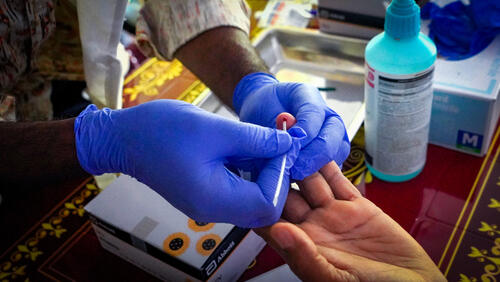
“Access to hepatitis C care in the camps, where more than a million refugees have been living for the past eight years, has been extremely limited,” says Dr Wasim Firuz, MSF deputy medical coordinator. “Treating hepatitis C is not part of the package of healthcare provided by over-stretched healthcare facilities. People are also not allowed to freely leave the camps to access healthcare, and even if they could, it’s unlikely they would be able to afford the cost of treatment.”
Harsh living conditions in the overcrowded camps, a lack of access to or reduced provision of healthcare, and a lack of legal status which severely restricts their basic rights, have made Rohingya refugees more vulnerable to infections – including hepatitis C – in Myanmar and Bangladesh. Our survey found that exposure to unsafe medical practices for decades, such as therapeutic injections, could be the main reason for the transmission of this bloodborne disease within the camps.
Our scaled-up programme in response sees teams conducting systematic community-based screening to proactively identify people with hepatitis C, a disease that does not show any signs or symptoms in its first phase. Rapid testing is followed by laboratory confirmation at the newly established treatment centres in Balukhali, Jamtoli, and at Hospital on the Hill. We are also implementing a comprehensive healthcare awareness campaign, which includes providing drugs for hepatitis C treatment and sharing prevention messages and treatment adherence counselling to adults.
“In the absence of other alternatives to hepatitis C care for tens of thousands of people in the camps, we are undertaking this substantial increase in our treatment capacity,” says Dr Firuz. “Our goal is to reach 30,000 people with curative care by the end of 2026. This expansion represents a vital step towards preventing the spread of hepatitis C, especially to younger generations.”
This expansion represents a vital step towards preventing the spread of hepatitis C, especially to younger generations.Dr Wasim Firuz, MSF deputy medical coordinator
Addressing this widespread hepatitis C epidemic nonetheless presents considerable challenges within the limited capacity of the overall health response in the camps. MSF will be conducting research to analyse such challenges and bring about solutions as part of our response.
“While we are scaling up efforts and working in coordination with other organisations, the limitations within the health response, including insufficient staffing, equipment, and resources among partners, present a significant obstacle,” says Dr Firuz. “Our campaign is temporary and will not eradicate hepatitis C in the camps. Attention to hepatitis C must continue during and after the end of this campaign. We again call on other health partners and the international community to prioritise building a comprehensive strategy, to reduce the devastating impact of this disease on this community.”



